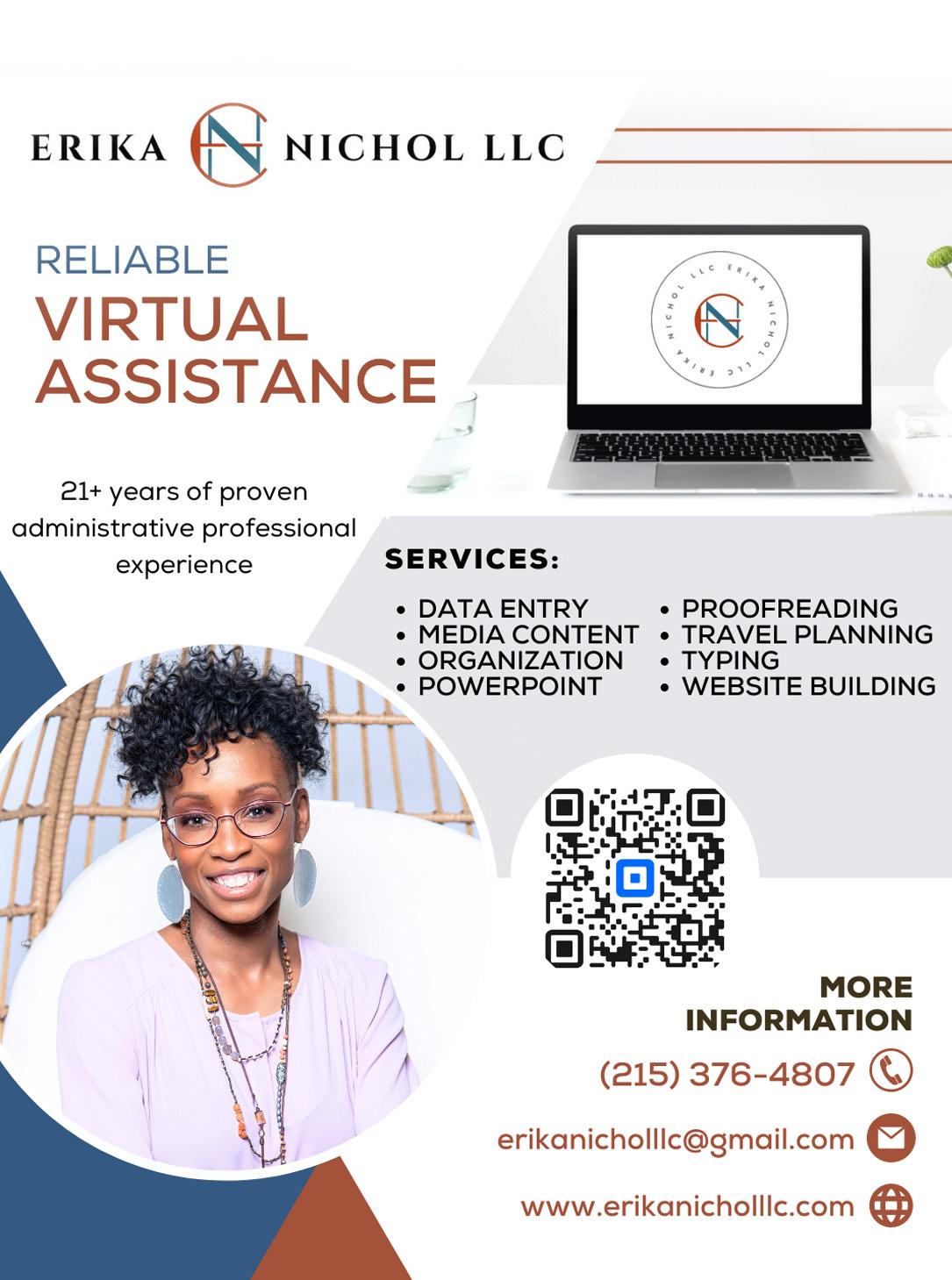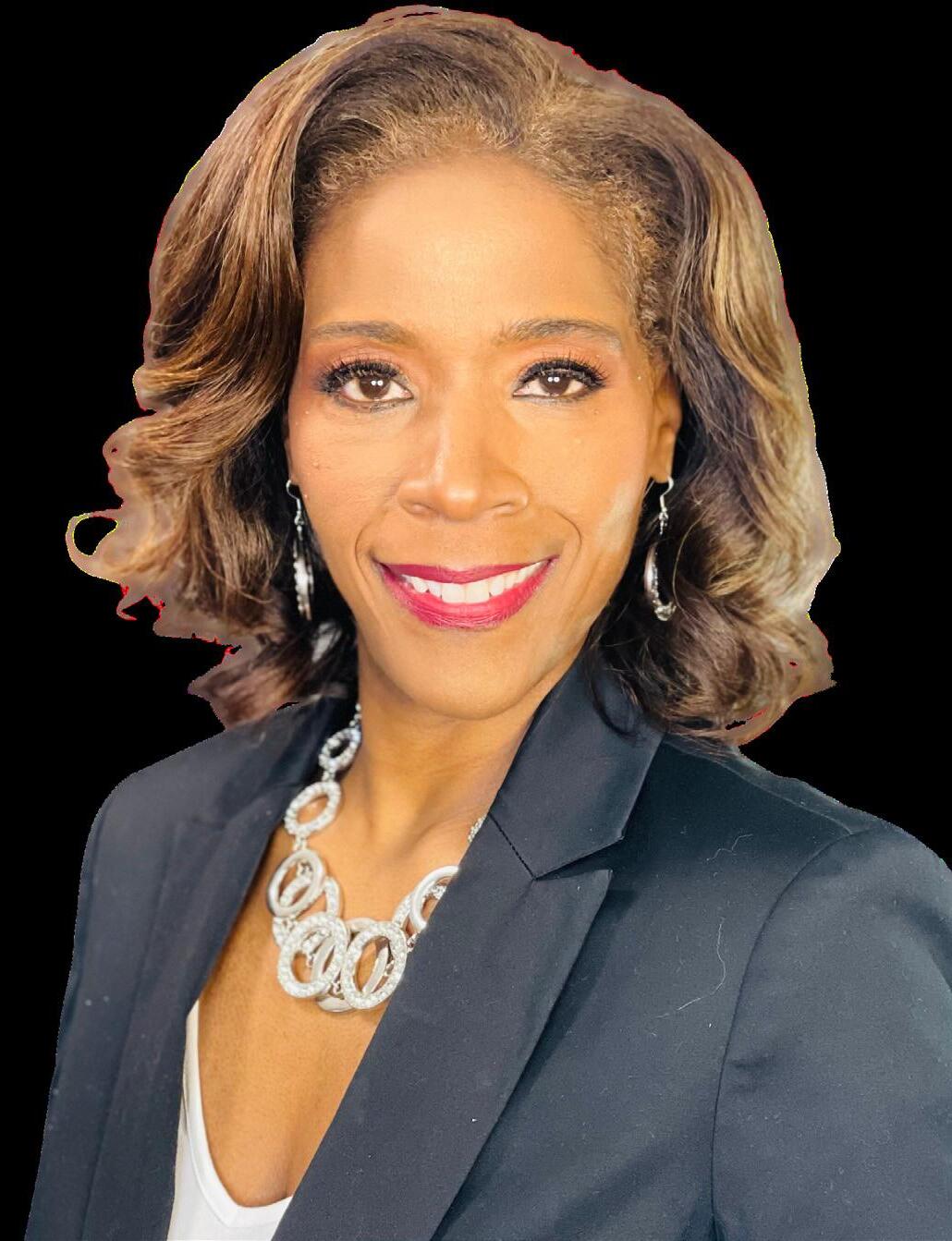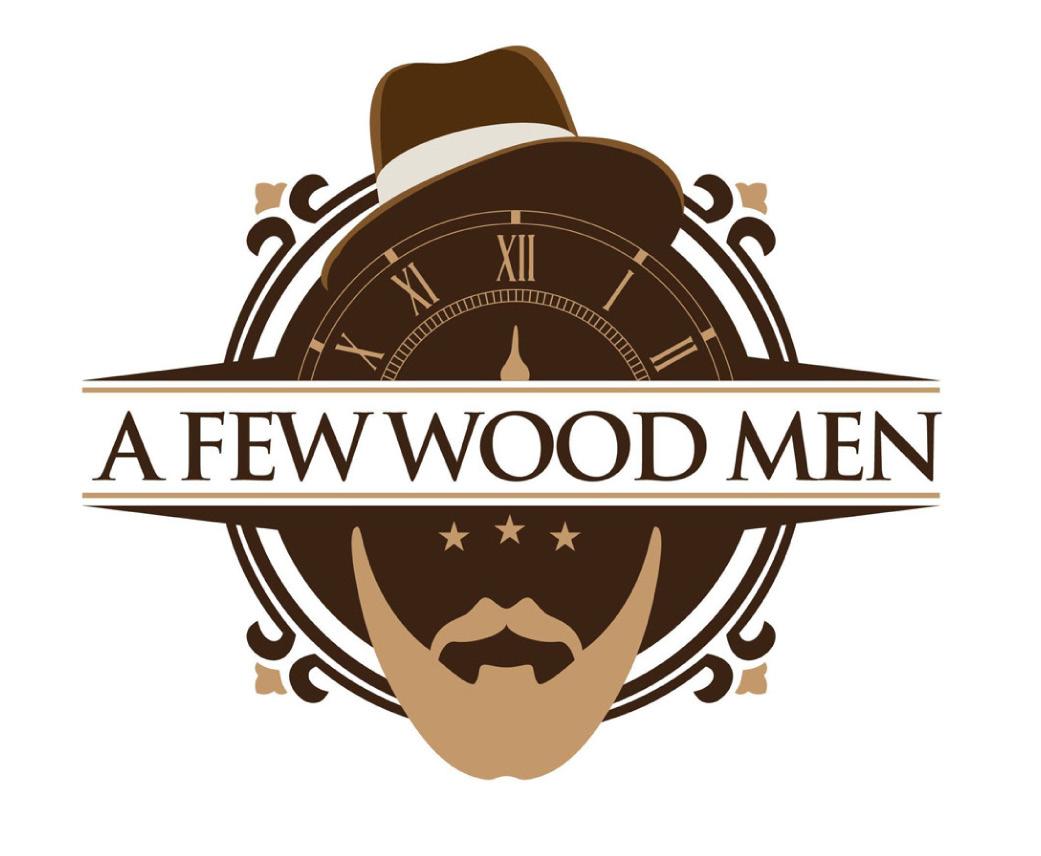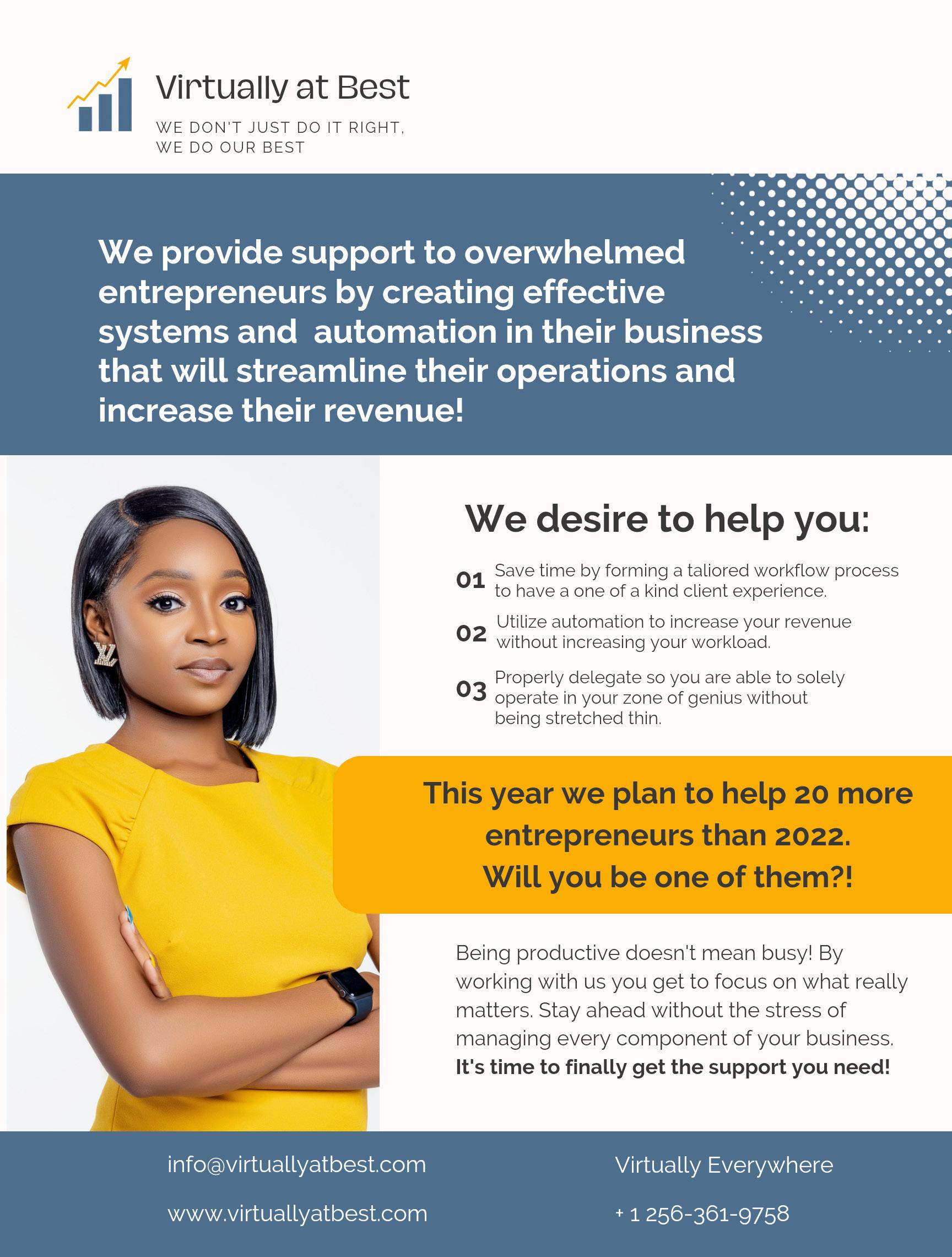Sept./Oct. 2023
Vol. 3 Issue 1


Sept./Oct. 2023
Vol. 3 Issue 1


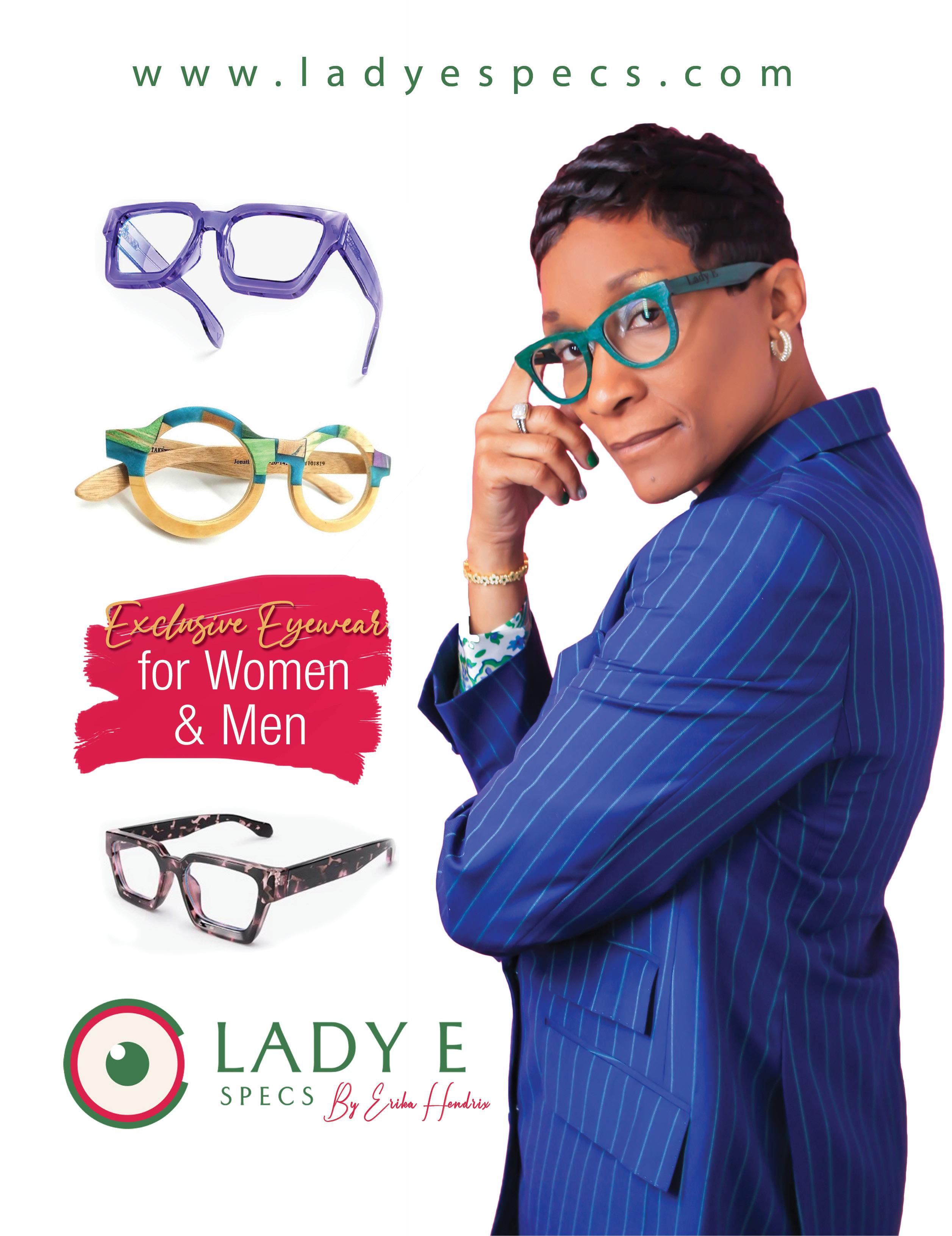
Your assignment is not the assignment of everyone else. Once I learned what those nine words truly meant, my focus on life changed. Of course, I have been told that God gives His toughest battles to His strongest warriors, but that memo didn’t include details of when the battles would end. Instead of sticking my chest out during my victories and hanging my head during the moments of defeat, I’ve decided to learn from each circumstance, and by doing so, I am prepared for the next battle with each new day.
A Letter from the Editor
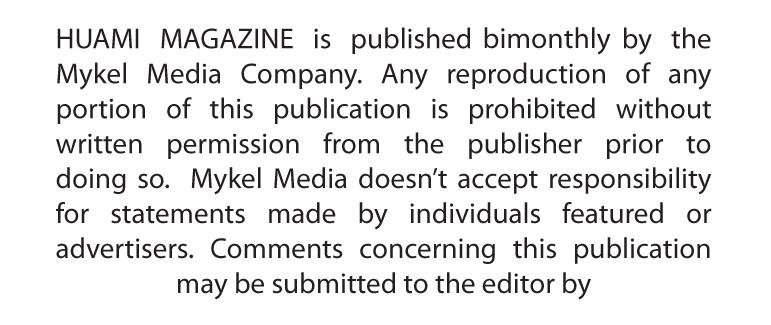
What if tomorrow didn’t arrive? All of your plans, hopes and dreams wouldn’t have a street to park on. What if everything that you decided to put off until tomorrow never happened? There would be no reason to save for a rainy day, and you could spare someone the trouble of making promises. What if your last opportunity seemingly expired today? What would you do?
The best advice I have ever given myself is to be satisfied in my attempts to be better. When I first launched Huami Magazine, I was presented with a situation that adversely impacted the quality of my relatively new publication. I was frustrated, but I also knew what had occurred and why it happened. The idea of quitting never came into my mind, even while I sat motionless, staring at the balled-up copy in reference. I didn’t know then, but God was preparing me for something greater.
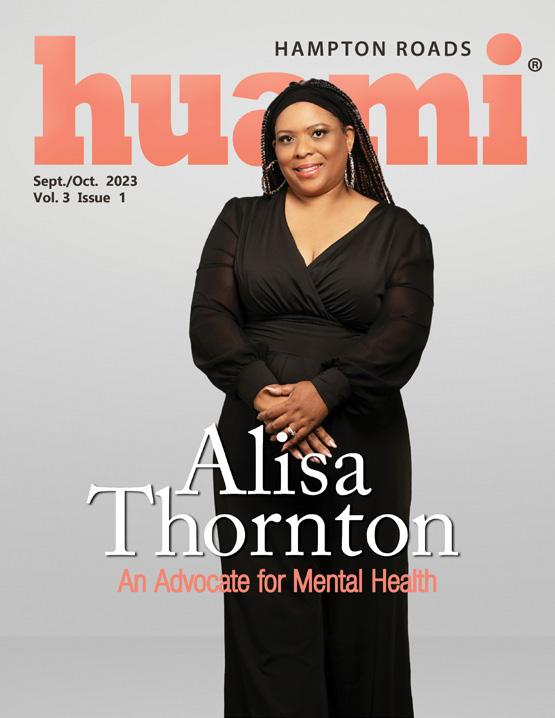
In November of this year, we will begin our seventeenthanniversary celebration of the birth of Huami Magazine. When I think about all of the layouts, the photo shoots, the interviews, and the distributions that have taken place, all I can say is God has been faithful and continues to keep His promise.
I’ve been told that I often seem like I do too much. Honestly, I feel like I am not doing enough and I’m a firm believer in knowing that God wouldn’t put anything on me that I couldn’t handle. I sometimes wonder how life would be if I chose to sit idle and accept what it presented to me. I have found that to be very boring. In my opinion, opportunity is a blessing that isn’t afforded to everyone. A challenge to me is an adventure. What is the worst that can happen? If I do nothing, I fail, and if I try I don’t, but instead learn something new about myself. Relinquish your pride and in return acquire life.
Had I given up in the beginning, the stories and testimonies of countless individuals may have never been published. Had I given in to the pressure of operating in the unknown, my mother would have never been able to mail magazines to her friends. Had I not decided to pour everything I have in me into producing something my community would celebrate, the hope that others have in God doing a great work for them may not exist.
The best advice ever given to me happened when someone told me to make my tomorrow happen today. In doing so I have pressed my way through doors with a key that only hope provided. I have also learned the difference between what God blesses me with and what life can burden me with as well. I compare it to knowing when to be confident and when to be quiet, because someone may get it confused with being arrogant.
Make you tomorrow happen today, but most importantly make it count. Life is but a whisper and we must put ourselves in a position to hear what it is telling us.
All of my assignments have come with a lot of responsibility. What is more interesting is that the same set of instructions has accompanied them all: to seek God first and operate according to His plans. My assignment is not everyone else’s, and I know everything I desire is connected to how it aligns with God’s plan. Learn your assignment and align it with God. He will handle the rest for you.
Terry L. Watson Editor/Founder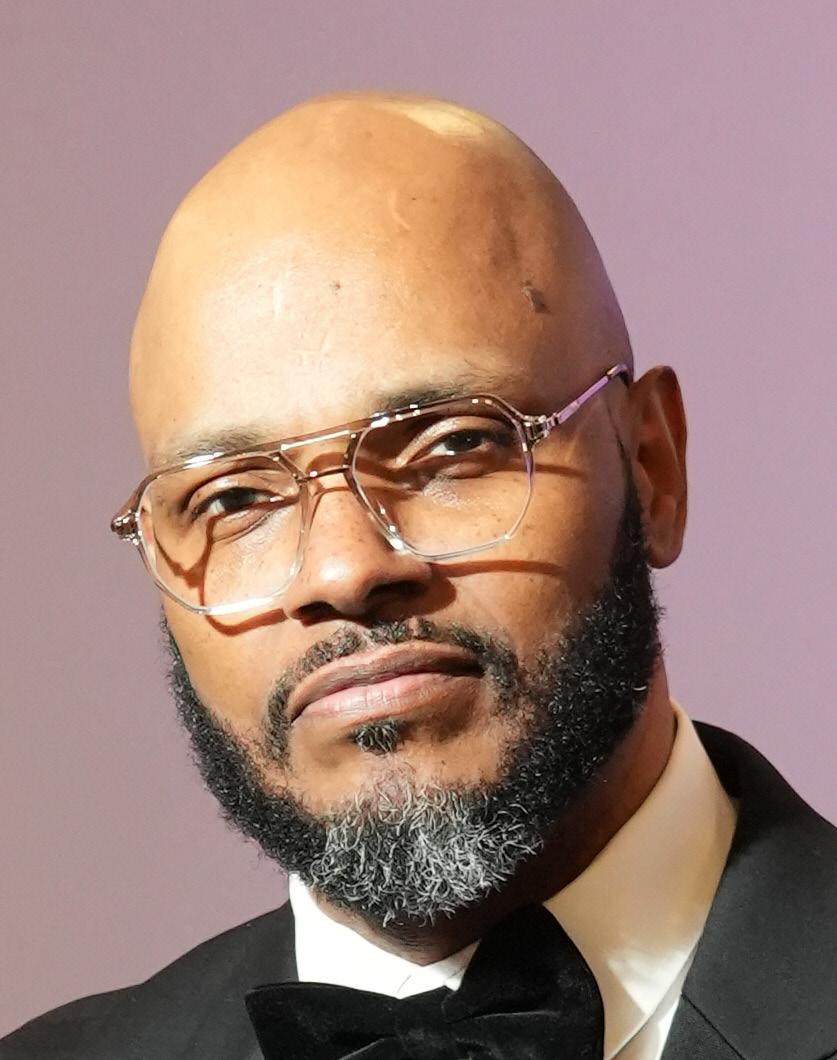

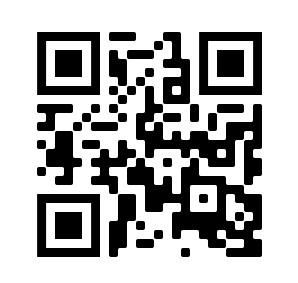
He is regarded as a scholar of soul food. His journey has taken him on some interesting paths. Learn more about him.
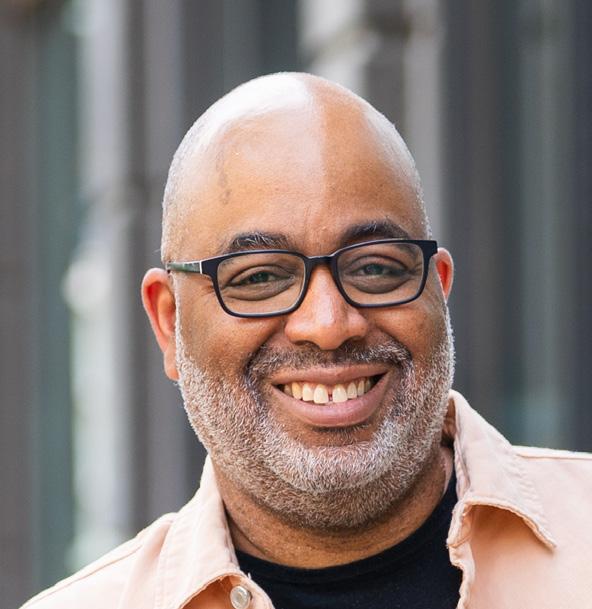
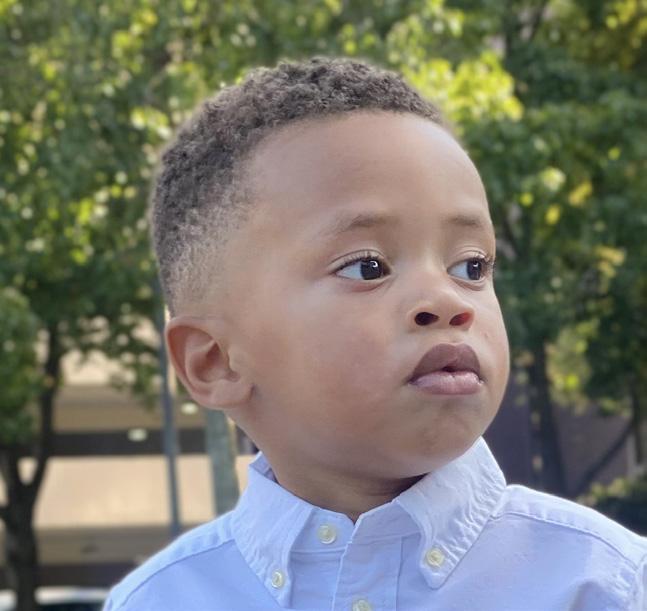
Denver, CO
18
With the growing demand of personal birth services, this young entrepreneur has built her business to serve during the entire experience.
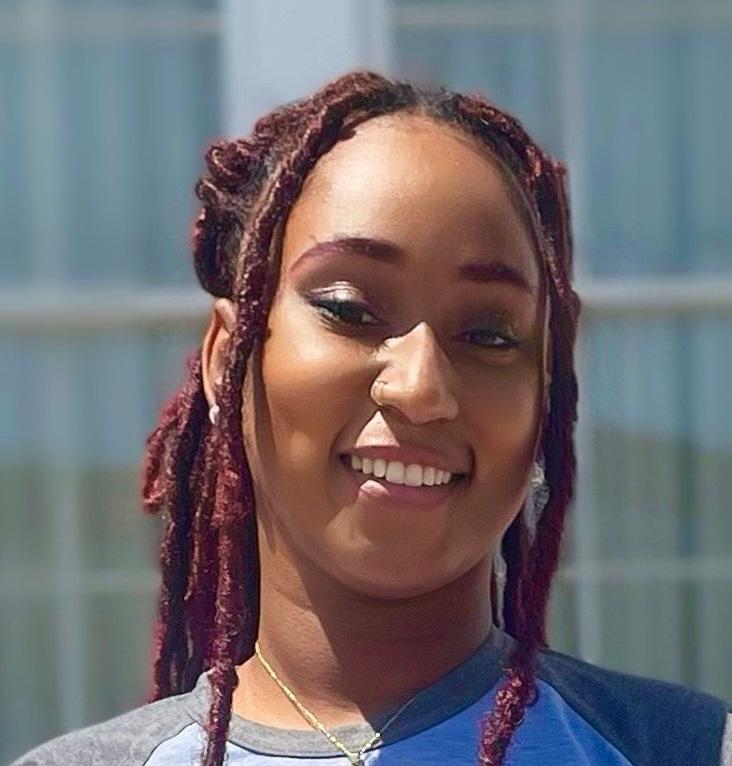
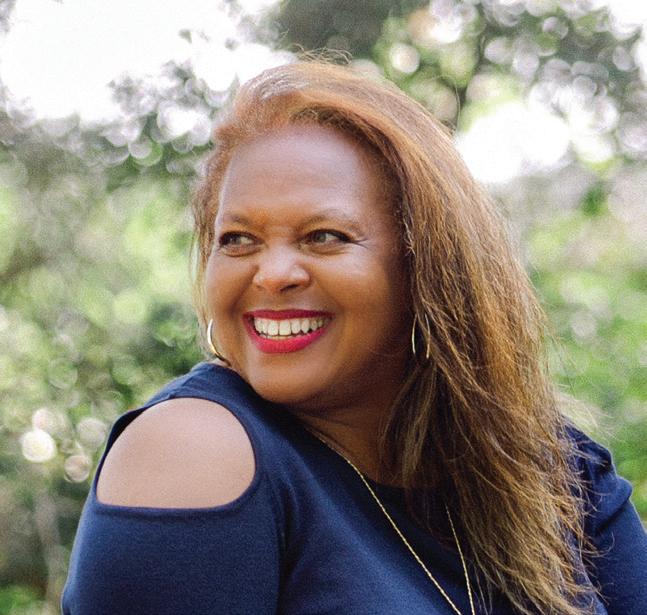

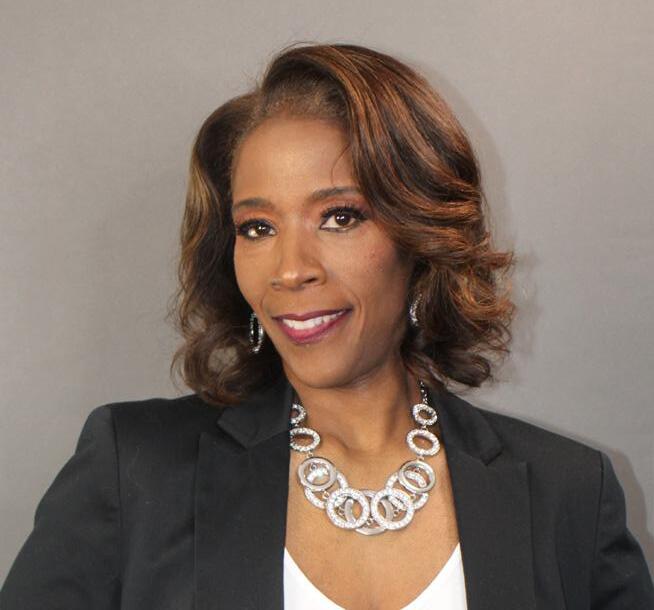
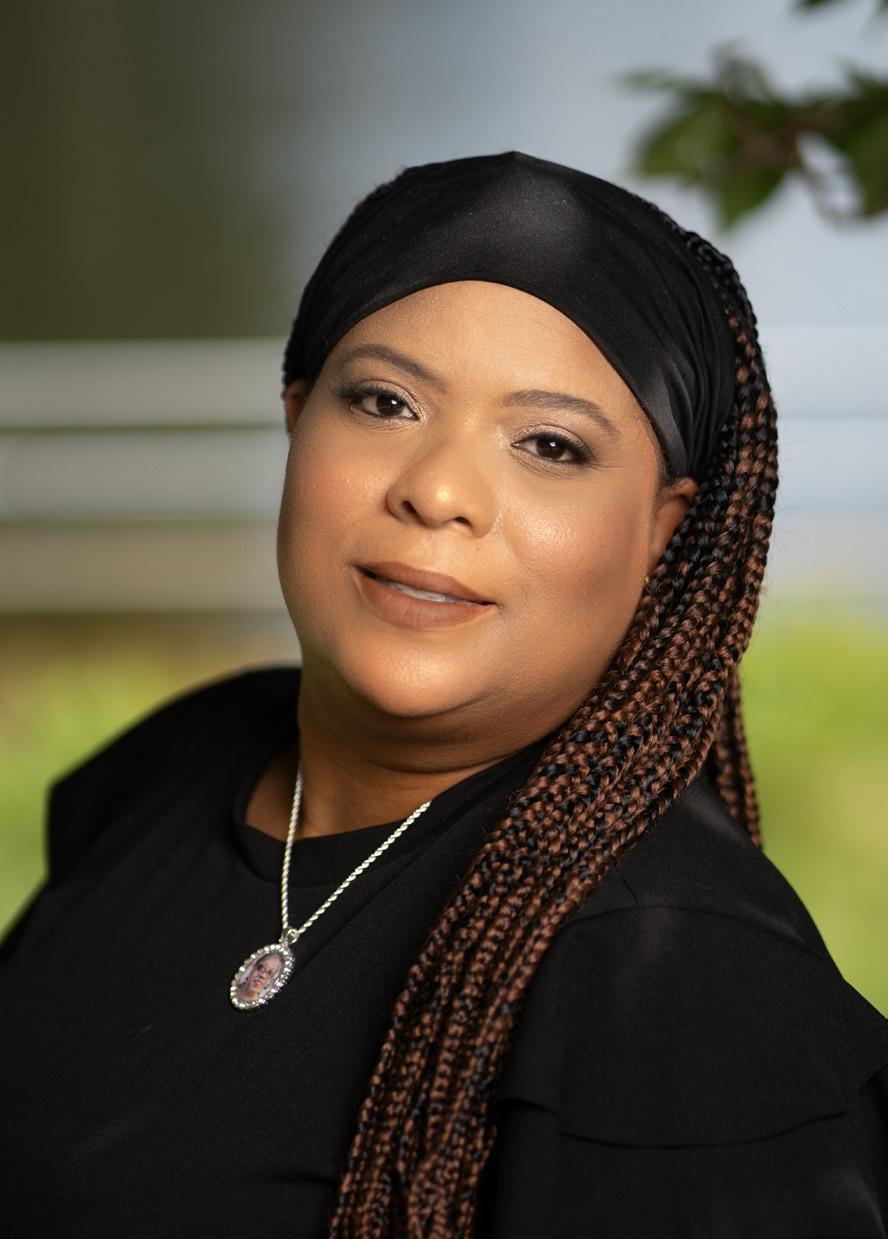
Gulfport, MS
32
His words are distinquished. They have taken him places far from where he ever could imagine. Learn more about who he is and his journey. Miami, FL
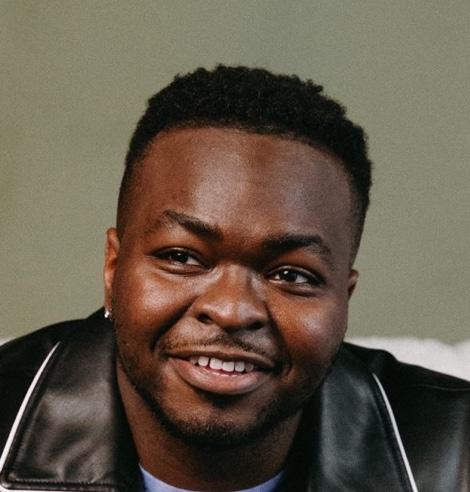

Washington, D.C., native Alisa Thornton Banks prides herself in advocating for those who deal with mental illness. She was raised by a single mother, Bernadette Thornton, known by many as a “Boss Lady” and mother to many mothers. Alisa says her mother instilled into her and her sister, Cyndi, the importance of being a mother first, and also on being self-sufficient and never needing anything from anyone. “My mother was a very good example of what it is to be from the city and represent your city in everything I do. She was also a hard worker, working her way from the mailroom in the Federal government to a GS 16,” Alisa says.
She lost her mother in 2022 after a long battle with cancer. Still, Alisa remains inspired and empowered to continue to build her legacy for her family in honor of her beloved mother by creating the Bernadette Thornton Foundation.
Alisa is a wife and mother herself, having two brilliant daughters. What is even more amazing is that she is a grandmother. Alisa is very hard on education and desired for her kids to attend school in Virginia, and moved from D.C./Maryland to Virginia so they could. Her move paid off, as her daughters graduated from high school with advanced diplomas and are now college students. “My family is my “why” and the reason I advocate so hard,” she says.
Alisa is a survivor of domestic violence. Today, she erves as an advocate in mental health. She is also a Realtor with Samson Properties. She takes pride in educating her clients on the importance of investing in their future. Her passion for helping others can be felt because she is passioned about the work she does. She also owns Another Touch Solutions LLC.
“I got involved with mental health because of others I saw suffering with the illness,” she says. Alisa is also big on advocating services for men, African-American men. She has conducted various support groups that have taken place in churches, schools, county workshops, barber shops, salons and anywhere the support is needed. She even had a few hookah bars request her to facilitate a support groups or mental health information sessions at their locations. “There are not many services for men in our community so I had to create a way to bring the support to them,” Alisa shared.
Alisa has proven to be a voice for those who cannot speak and the light for those in dark places. Her efforts have placed her on a national platform as an advocate and activist in Mental Health. She has spoken at a Congressional Briefing in 2016. Since doing so, she has worked nonstop in her community.
The stigma associated with individuals suffering from mental health continues to hinder them from coming forward and sharing their illness with others. “People often labeled people crazy, but if you think about it, no one offered to help that person. Throughout life, it was my perception that no one really cared to help these individuals,” Alisa says. That pushed her.
Alisa recounts her life had many ups and downs, but because her mother worked so hard, it wasn’t as bad as it could have been. She did, however, experience the same trauma and tragedy as anyone else. In 2012, her stepfather was murdered at her family home by his brother. This shattered her trust in people and family. “ How can you trust when you can not even trust those within your own home? You can not feel comfortable when someone in your home is murdered by another family member,” she said. Nobody really understood the trauma that has on her or her family. In order to move past this, she needed answers. She felt she had to create change. She began working for NAMI, the National Alliance of Mental Health. In her role, Alisa used her own experience to help support families and caregivers who were in crisis to become stable again.
Alisa has been recognized as one of the sought-after Family Support Partners/Peer Support Specialist for the minority population in Northern Virginia. She has helped hundreds of families navigate the system to get the right services in place to help their families get on track. Even more, Alisa has a keen sense of empowering, supporting, and understanding parents going through crisis.
Alisa is highly experienced and comfortable working within at-risk and vulnerable communities. Today, she is certified as a trainer to conduct support groups/classes and parent training for NAMI Virginia and NAMI Prince William. She is a speaker at the CIT training for police officers in Prince William County. She often shares her experiences to help officers understand the family perspective to bridge the gap between officers and the community. Her work hasn’t gone unnoticed. Alisa has even been invited to attend the National CIT Conference in Detroit in August with over 1,500 officers. In June 2023, Alisa received the NAMI Virginia HOPE Award.
While continuing to work with NAMI, Alisa discovered VOICE, Virginians Organized for Interfaith Community Engagement. This began her path of working with legislative matters, including input during the general assembly. She says having the voice of the parents and peers in the community alongside some of Virginia’s most powerful Faith Leaders has been an unbelievable experience. This organization is the driving force in Virginia’s mental health response, opening the first Crisis Receiving Center in Woodbridge in 2024.
Alisa currently serves as Chair of the Virginia Department of Social Services, Division of Family Services (DFS) Parent Advisory Council. The Council’s mission is to collaborate with DFS in building strategic partnerships between parents and staff, promoting parent leadership development, and helping expand the meaningful roles and voices throughout public child welfare. She also represents the Council on the Child Welfare Advisory Committee in this role. Other organizations she has worked with have been Casey Family, Families Forward, FSP’s of Virginia, BPNN, Generations United, and many more.
Alisa joined forces with Stars Performing Arts Inc (Shining. Through. Adversity. Reaching. Success.), a 501c3 non-profit organization, in early 2022. The organization gives those challenged (visually impaired, autistic, down syndrome, homeless shelter, foster homes, parents on substance abuse, and various other disabilities) a platform to shine in the arts.


Looking ahead, Alisa hopes to get more involved with legislation that’s associated with her cause. She also hopes to help others learn how to become financially stable, which includes educational components focused on understanding a credit score. “I just want to be on the frontline and do the work. I don’t need clout; I don’t need recognition. All I need is to get the people I serve results,” she says.
In conclusion, Alisa shares, “This is the Year of the Peer! I will continue to be the light to those in dark places, and the VOICE for those who can not SPEAK!”
h
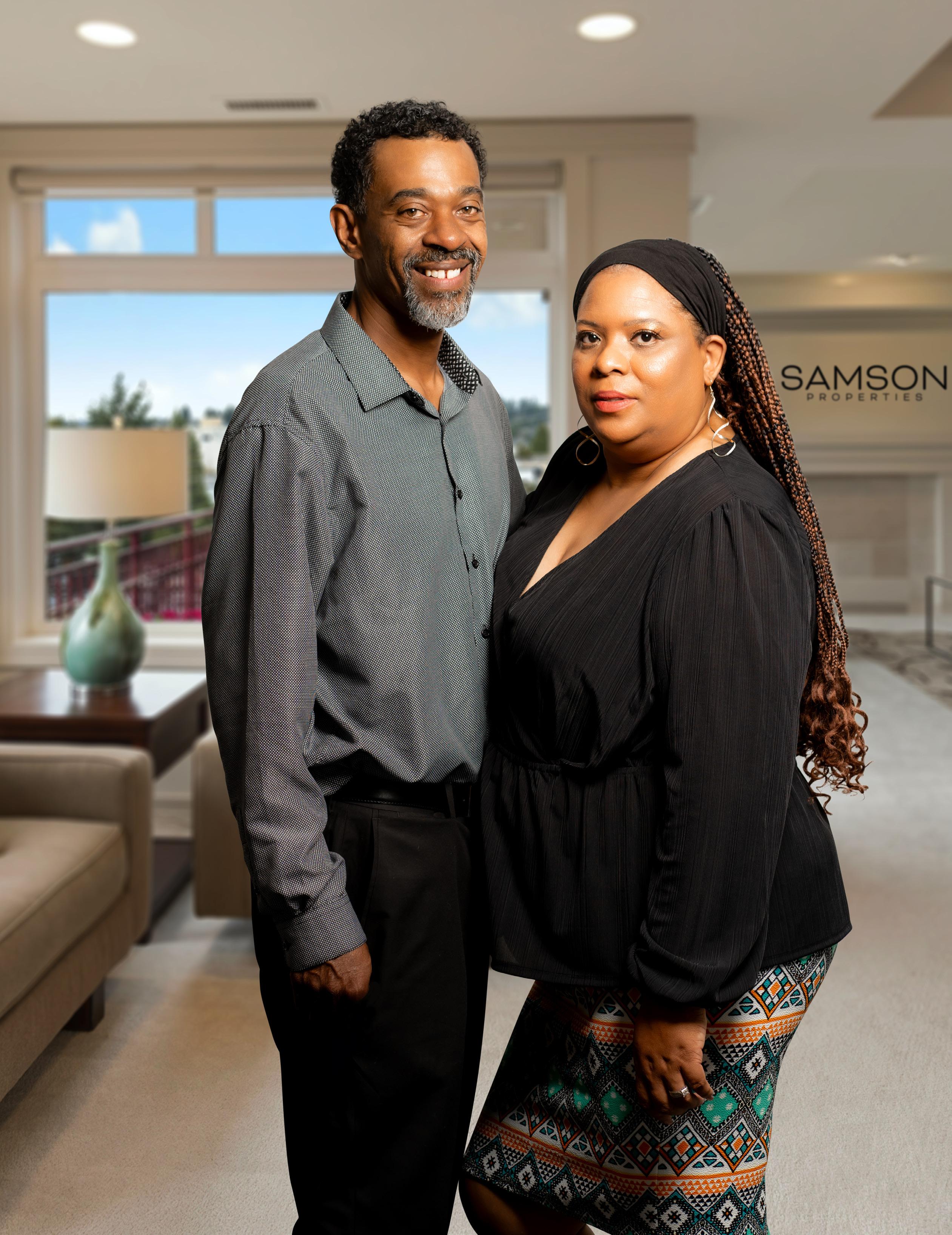


 By Monica Montgomery - Photos Provided by Claxco Media
By Monica Montgomery - Photos Provided by Claxco Media
Americans are among the most morbidly obese globally. Still, we spend more than any country per capita on weight loss gimmicks. Melody McClellan, of St. Louis, MO, is a wife, mother, and former pharmaceutical sales rep, and ten years ago, she would have never imagined herself helping others in physical health and wellness. Today, she can’t imagine doing anything else.
As her clients call her, Coach Melody is an outstanding Health and Wellness with twenty-plus years of experience. “After years as a pharmaceutical sales rep, I realized there is a huge lack of education around nutrition and mental wellness,” Melody explained. “I saw the bags of medication growing, but nobody was actually getting better.”
In October 2013, Unwrap You was born. “I was at a turning point in my life. My kids were older, and I started to feel like I wanted to do something more with my life,” Melody shares. “I studied wellness and nutrition and started trying to show people that there was a better, long-term solution to a healthier way of life. When I started as ‘Coach Melody,’ I thought it was just about helping people lose weight. I quickly learned that there is a lot more to this process. It’s about the individual’s mindset and prevention. You have to consider what people have been through, what mental baggage they carry, and overall be willing to meet people where they are on their wellness journey.”
Melody was born in St. Louis but moved with her mother and brother to Los Angeles when she was ten. The fitness and body image bug didn’t hit her until age sixteen. “I wasn’t the healthiest kid growing up. What I mean is I wasn’t into sports and athletics. I think it was around sixteen that I got into health and nutrition,” Melody admitted. “I started watching what I ate and changing some habits. When I saw the results, it motivated me to continue exploring what a healthier me looked like. Like most people, I tried different fad diets and meal plans. But that’s how things started for me.”
The one thing Melody says she has always loved was sales. As a pharmaceutical sales professional, she gained valuable insights about various cormobidities. “There were a lot of medical options for people who want to get healthier, but as I thought about it, I realized that they weren’t actually getting healthier. They were masking the problem.” Melody found a way to help people holistically live better lives while doing something she enjoyed. She would advocate and teach the world how to create lifestyle change that’s sustainable for optimum health and well-being.
“I was told that your passion is something you would do for free. Marketing and sales are my passion. Now I get to combine that with another love of mine, and it’s a win-win,” Melody explained. “Now I feel like I can effect change, especially for youth and communities who wouldn’t normally have access to the information I’m providing.” Coach Melody has been able to transfer her corporate knowledge and training to empower transformations within corporations, executives, youth, and chronic patients in health systems.
Coach Melody’s health and wellness platform has caught on in a big way. Five years ago, she left her corporate sales position and went full time as a Health and Wellness Transformation Strategist. Make no mistake, this wasn’t just a good idea. Melody wanted to make sure she was adequately prepared to succeed at changing how people viewed their mental health and wellness. “When I started, I wanted to be as informed as possible because you only have one chance to make a good impression. The last thing you want is to be uninformed about the root cause of the illnesses you are trying to prevent,” she shares. “As a pharmaceutical sales rep, you are well-trained on the latest medications and their indications. Having that foundational knowledge of the different disease states have proving beneficial along with obtaining a holistic certification in nutrition and mental wellness.”
One of the things Coach Melody tries to shed light on when it comes to living a healthier lifestyle is there are no quick fixes. “I have learned that drugs don’t make you healthy. They are made to control chronic conditions. What I teach in my program is you can come off many maintenance medications, but it won’t happen with the snap of a finger,” she explained. “One of the key phrases I always use is, ‘You are creating a lifestyle change.’ Exploring those changes and their impact is a big part of what I do. It’s all about helping people change their mindset. All change starts in the mind. It’s hard at first, but the body will follow once you change your thoughts. It’s hard at first, but with the proper education, strategies, and expert to keep you accountable it becomes easier to incorporate lifestyle change that is sustainable.”

Sometimes, we encounter people who offer advice or support in an area they have only clinical experience in. Coach Melody’s wisdom was gained firsthand. “A big part of why I started focusing on mental and physical wellness was because after I had my children, my body didn’t snap back the way I thought it should have,” Melody shared. “I’ll be honest and say I had difficulty losing the post-pregnancy weight. You see those women who have babies, and boom, they look like nothing happened. It didn’t work like that for me.”
Struggling to figure it out, Melody went on a personal wellness journey. “What I learned as I worked toward a sustainable healthy lifestyle was it was less about diet and exercise and more about portion control, what I was eating when I was eating it, and why,” she explained. “While on my journey, I did participate in a weight loss program, but it didn’t take long for me to realize that their plan wouldn’t work for me.”
When she started the business, she was only working it part-time, but the pressure of being a wife, a mother, a sales rep, and a health and wellness coach started to take its toll. “I want people to know that the program I am prescribing to them is the same one that saved me when I was in a fragile place,” Melody shared. “With home and family life, work, and the part-time business, I became so stressed that my body began to break down. I suffered hair loss, and my skin started breaking out. I wasn’t taking care of myself the way I should have, and my body was reacting. I had to make the decision to put my health first. I had been preparing the business for about five years, so I took my exit when my company offered a voluntary separation which included a severance package.”
It’s been over twenty years since Coach Melody started her personal journey. In that time, she has maintained the weight loss and enjoyed the healthier side of life she offers her clients.
In the beginning, Melody handled individual clients, but as the Unwrap You movement has grown over the years, Coach Melody has found a way to get her message out to a broader audience. “As I explained before, when I started, I thought health and wellness looked like a personal trainer encouraging an unmotivated individual towards a personal goal. But it is so much bigger than that,” Melody explains. “Understanding the body, mind, and spirit aspects of health and wellness made me want to do more to reach people around the world. Before, I would work with one client for one hour. Now, I can reach six hundred people, speaking and improving workplace productivity in that same hour. It is a way to maximize outcomes and impact more people globally. So now I focus on corporate wellness programs, speaking engagements promoting a healthy mindset, and youth wellness and life skills programs.”
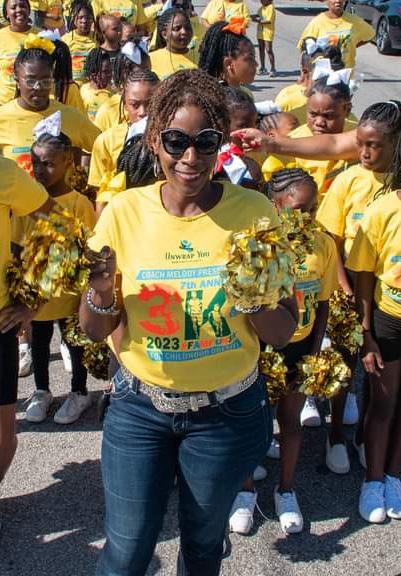
One of Coach Melody’s programs is the Fam Fun 3K Walk, held annually in September. “September is Childhood Obesity Month, and for the past seven years, I’ve hosted the Fam Fun 3k Walk in Lincoln Park in East St. Louis, Illinois. This event raises funds and awareness of childhood obesity. This is a family fun event, and proceeds go to youth and family-driven charities,” she explained. “It is a great time for a great cause. There are various resources, activities, and fun for everyone. The great part is that we have given over thirty thousand dollars back to the community in the last three years.” In the seven years since the Fam Fun 3k Walk started, it has reached twenty-five states and three continents.
Coach Melody wants to stress that one size does not fit all when creating a successful wellness program. “My goal is to create an experience with every company, organization, youth, or leader I contract with that leads to results. You can’t take the cookie-cutter approach when creating a wellness program,” she says passionately. “It’s important to me as a consultant to know what you are trying to accomplish, how you are trying to get it done, and what financial investment you want to make to see this happen.”
When it’s all said and done, Coach Melody’s goal is to allow everyone to live better. “I pride myself on ensuring everyone has the most amazing experience! If you enjoy the experience, you will keep doing it. A healthy lifestyle increases productivity, makes you feel better, and improves mobility. It is not about a number on a scale. It’s about what’s weighing you down and making small improvements over time that are substantial. For example, walking up a flight of steps without being out of breath, your clothes fit better, which builds confidence and improves your mood. I could go on and on because there are so many benefits to creating a healthier lifestyle.”
As Coach Melody looks toward the future, she sees herself moving toward advocacy in the space of underserved communities. “I have had the opportunity to discuss cultural competence in front of the Illinois Senate and the House of Representatives. My point was that it’s hard to understand what people go through when you haven’t walked a mile in their shoes. My life experiences qualify me to speak to and for people on either side of the line. I was raised by a single mother in areas we now identify as food deserts because the people didn’t have access to grocery stores. I was that struggling college student who had to check the couch for loose change to buy food or gas. Now, I have everything I need and live comfortably, but those experiences make me relatable. My sensitivity to my community positions me to help find a long-term solution to providing nutrition-based education that will allow us to live healthier and more productive lives globally.”
Coach Melody wants people to understand that after years of walking this path, she’s learned that anyone can do it. “I don’t care if you are eight or sixty-eight. Everyone can create a strategic wellness plan to achieve their health and wellness goals. You are never too old to invest in you. Start with loving yourself to life. Are you ready for the Unwrap You Experience”
“A healthy lifestyle increases productivity, makes you feel better, and improves mobility. It is not about a number on a scale. It’s about what’s weighing you down and making small improvements over time that are substantial.”

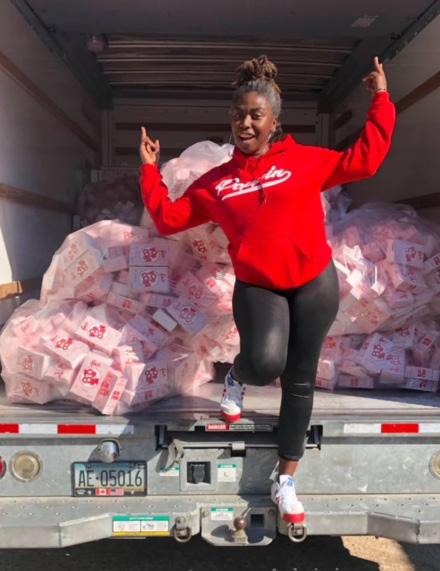
 By Terry L. Watson Photos Provided by Khadijah Polly
By Terry L. Watson Photos Provided by Khadijah Polly
Who doesn’t love popcorn? For Khadijah Polly, that question is one she is always eager and prepared to answer. Khadijah owns Kay’s Kettle Corn, an African-American and female business based in Houston, TX. “Our popcorn is fresh and popped right after you order it,” Khadijhah says. “Kay’s Kettle Corn is made with four simple ingredients: popcorn, sugar, canola oil, and sea salt, and is perfect for when you’re craving a sweet, salty, and crunchy snack.”
Khadijah is a native of Los Angeles, California. There, she attended the Los Angeles Center for Enriched Studies and graduated in 1999. Her next move landed her at Grambling State University, a Historically Black College and University in Grambling, Louisiana. HBCU’s are known for putting out exceptional students that personify the meaning of black excellence, and Khadijah was sure to keep the tradition in motion. She graduated with honors with a bachelor’s degree in Marketing in Spring 2003 and became a member of the renowned Delta Sigma Theta Sorority Inc.
Kay’s Kettle Corn is a gourmet popcorn company that provides two popcorn flavors for parties and events. Their signature kettle corn is sweet and salty and is typically found at carnivals and festivals. The second one is their movie theater popcorn.
When not popping popcorn, Khadijah has been able to author an ebook called POPCOINS- How To Make $500 a Month With a Home-Based Popcorn Business. She also serves as a speaker, covering topics of empowerment and entrepreneurship, and as a specialty foods business coach. She also facilitates a workshop designed for schools called Popcorn CEO’s (Children’s Economic Opportunities). “Our workshop teaches entrepreneurship based on the principles of supply chain management while using a popcorn company as the business example,” Khadijah says.
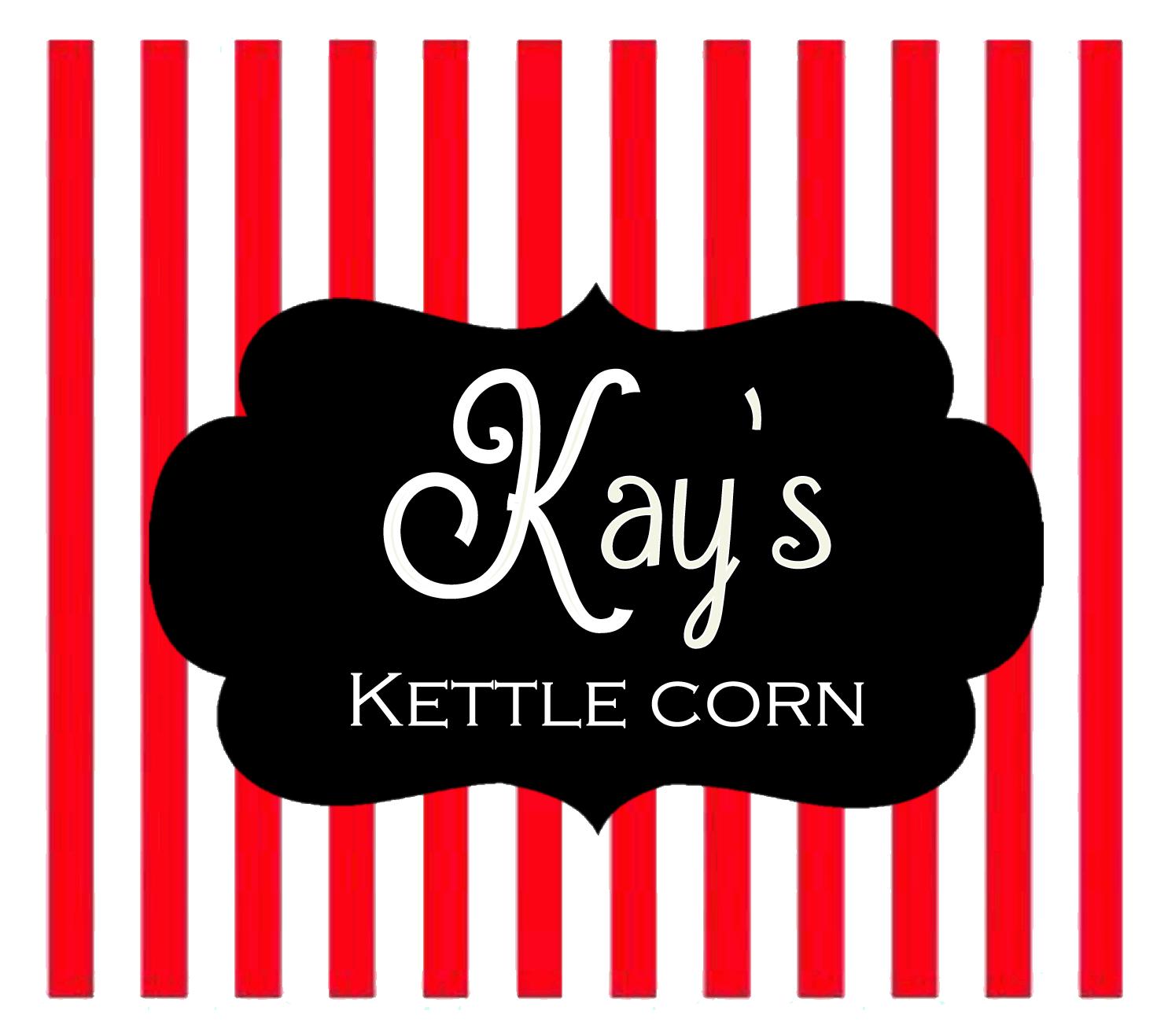
So, how did Khadijah get started? She says, “I’ve always been an entrepreneur, having some form of a side hustle. I’ve also always been a snacker, if I didn’t sell popcorn, I would probably sell chips. In 2012, I had a bridal resale shop at a huge flea market in Houston. Out of hundreds of businesses in the flea market that could sell food were the owners; it was popcorn. That’s when I noticed there was money in concessions. I would see people eating it from these plain brown paper bags. No frills. One day, I was closing my shop and wanted some popcorn but didn’t want to walk on the other side of the flea market to get some, and I thought, surely I can make this. So I did. I went home, looked on YouTube, and found out how to make the popcorn indoors. The rest of the story is history.”
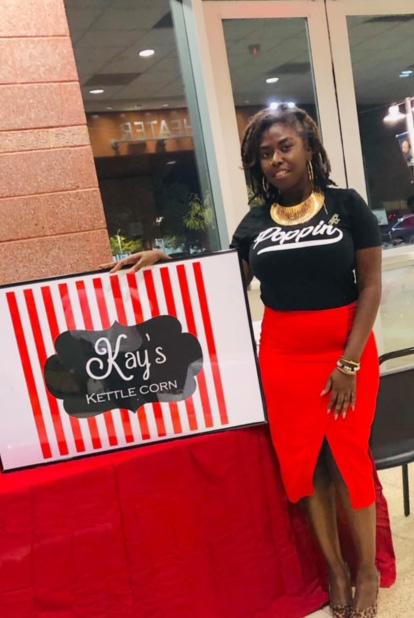
Khadijah shares that she loves being a part of people’s celebrations and the freedom and flexibility entrepreneurship provides.
Kay’s Kettle Corn is a family affair. “It’s all hands on deck whether the order is three bags or 30,000 bags; my family jumps right in to help every time, no matter what,” she says. She also shares that when she first started, she would get questions from people with similar interests in food. “They would follow me on social media or meet me in a networking event, and their eyes would light up when they heard my story and saw the progression. That’s when I wrote my ebook sharing my exact steps in what I did to get started, which then turned into coaching. I’ve mentored young entrepreneurs in Ghana who wanted to start their popcorn business. I’ve taught women in Northern Ghana how to make popcorn. The beauty of this popcorn business is that it’s easy to get started, the profit margins are great, the product is versatile in terms of flavoring, it keeps well, it’s inexpensive to start the business, and you can get repeat customers.”
When the Covid 19 pandemic hit, Khadijah had to pivot and think about her business model. At that time, her biggest clients were businesses and event planners, but she managed to survive that season of uncertainty. Also, deciding when to take on financing to scale has been challenging for Khadijah. “With additional debt comes a ton of responsibilities. I’ve had to ramp up marketing to get more customers to pay for the new equipment, additional production space, staff, etc. It’s a never-ending cycle, and as a free-spirited entrepreneur who likes to take off when I want, it’s something that I struggle with consistently.”
Moving forward, Khadijah says she plans to participate in major festivals, take her popcorn brand internationally, and become a vendor in soccer stadiums in African countries. “Popcorn is an inexpensive product and is very profitable when sold in large quantities. Some developing countries in Africa are wide open and welcoming to entrepreneurs. It’s a business model that can be taught to young entrepreneurs there,” she says.
For more information, please visit the website for Kay’s Kettle Corn. h



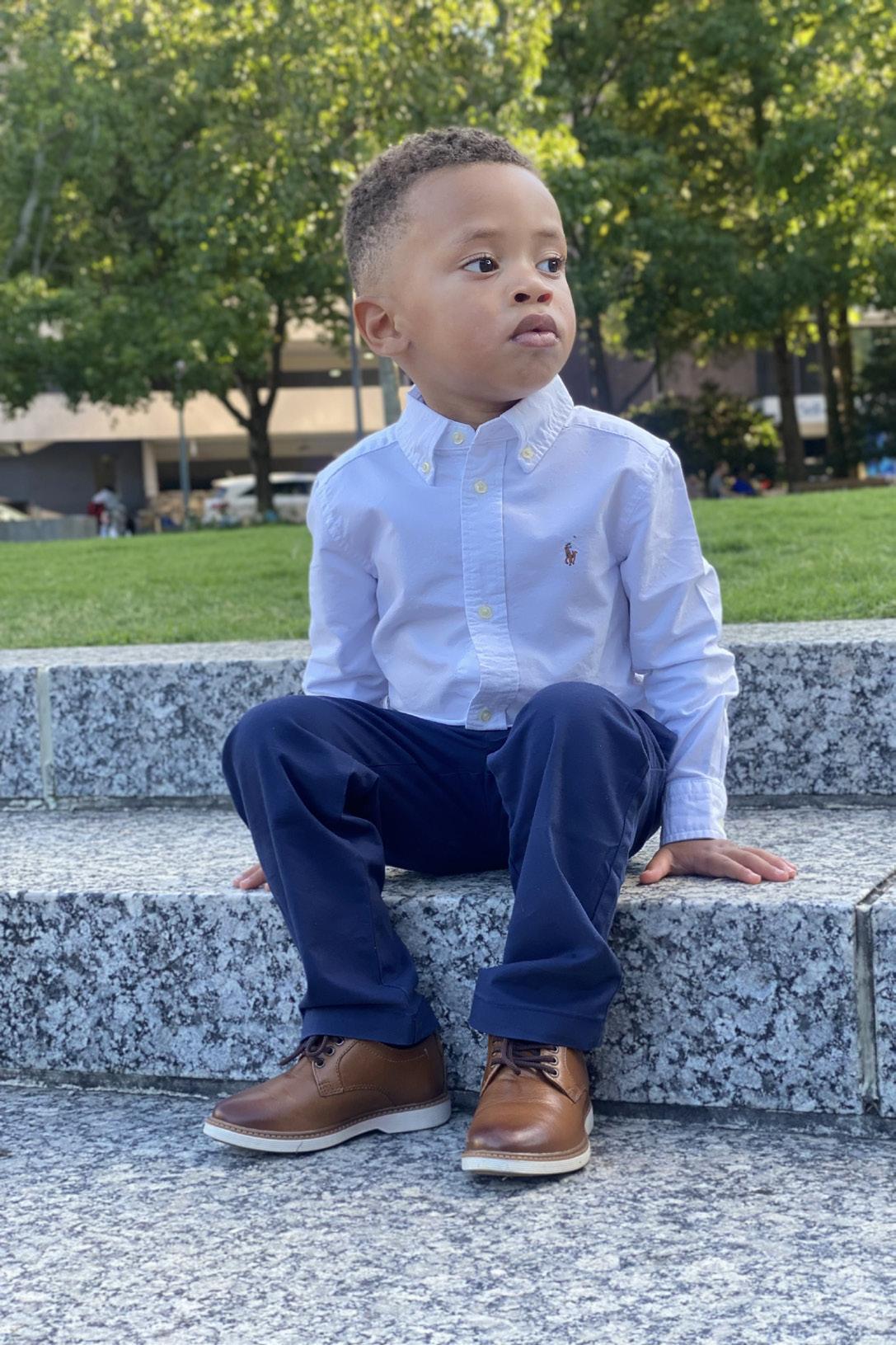


 The son of Shannon Hairston
The son of Shannon Hairston
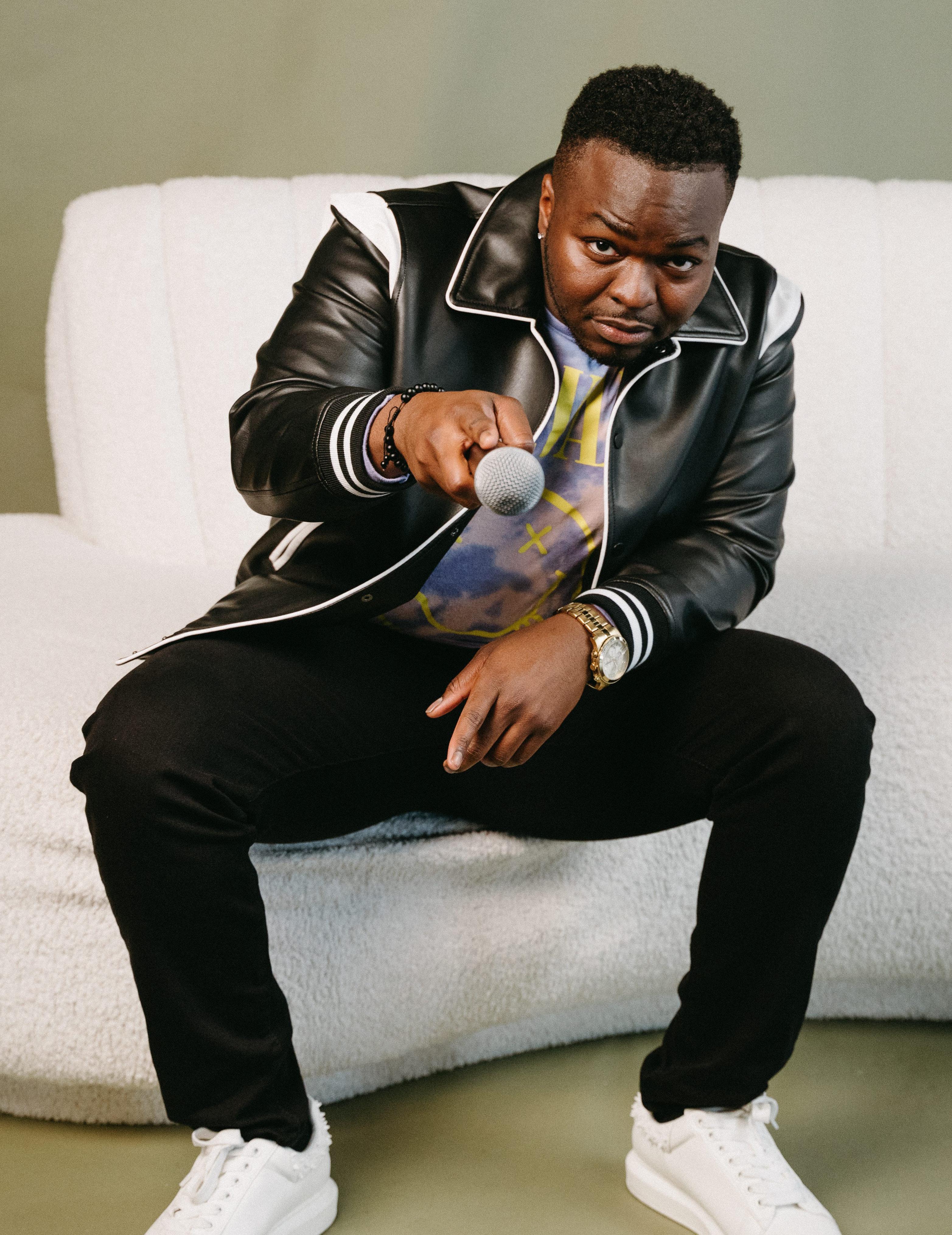
Taki Brown is a trailblazing poet who has a gift for both Rhymed and Narrative poetry. His delivery of words is candid, gaudy, and serene; however, don’t let his smooth flavor fool you. Taki’s vision exceeds the boundaries of his stage performance.
Born in Jackson, TN, Taki spent most of his life in Walton Beach, FL. He has also involved himself in many things in his short life. Currently, he resides in Hampton, VA, and has been an active officer with the United States Air Force since 2017. He has also found time to attend college at the University of Maryland Global Campus while pursuing a degree in Marketing.
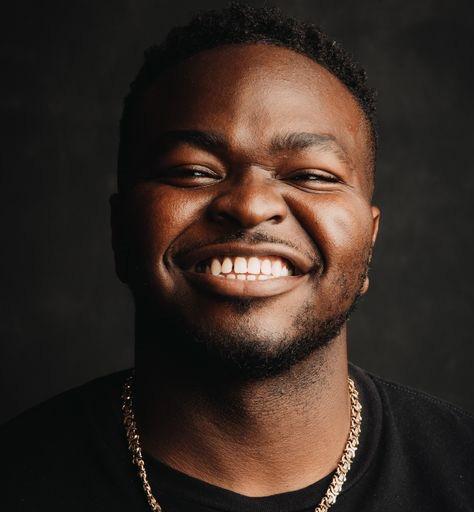
Taki’s interest lies in poetry and acting. His career with poetry began in Florida, and he enjoyed his first gig at Spill The Tea in Fort Walton Beach. “When I first got to Florida, I thought poetry was just something to do. I was like all the other kids who grew up in my era. I tried rapping and freestyling with my friends. I wanted to find a way to release my emotions and be vulnerable with my audience, and poetry was the answer,” he says.
Since becoming a poet, he has performed in states outside of Florida, including North Carolina, Virginia, Alabama, and others. He also has a gift for acting, brilliantly combining his talents and turning his poetry into film. His first production, or poetry short film, is called You Were Loved, which was based on one of his poems.

As a poet, Taki has been inspired by other great poets, including Rudy Francisco and Steven Wills. He also acknowledges his fiance, Tashana Griffiths, for keeping him on his toes whenever he decides to write. Additionally, Taki recognizes Kalvo Griffin, a director, for showing him how to prepare professionally.



While Taki’s gift has taken him to places he never imagined he would be, he also shares there are times when it’s challenging. “I have a love-hate relationship with poetry. I love that it allows me to release and express my emotions, but I also resent how it takes so much from me. It can be draining at times. If you put your all into something, it can be draining,” he says. Another challenge he faces is writers’ blogs. “I am emotional and allow myself to be vulnerable. When I am in front of my audience, I try to avoid appealing to my audience too much. I try to avoid those places and rather focus on doing what I do best.”
Looking ahead, Taki plans to continue using his talents in film and poetry. He also plans to write a book, launch a podcast, and produce a film. There are also plans in the works for a clothing line. Taki concludes saying, “My goal in life is to be remembered. I want people to look at what I accomplish and believe they can be whatever they want to be.”
I have a love-hate relationship with poetry. I love that it allows me to release and express my emotions, but I also resent how it takes so much from me. It can be draining at times.”


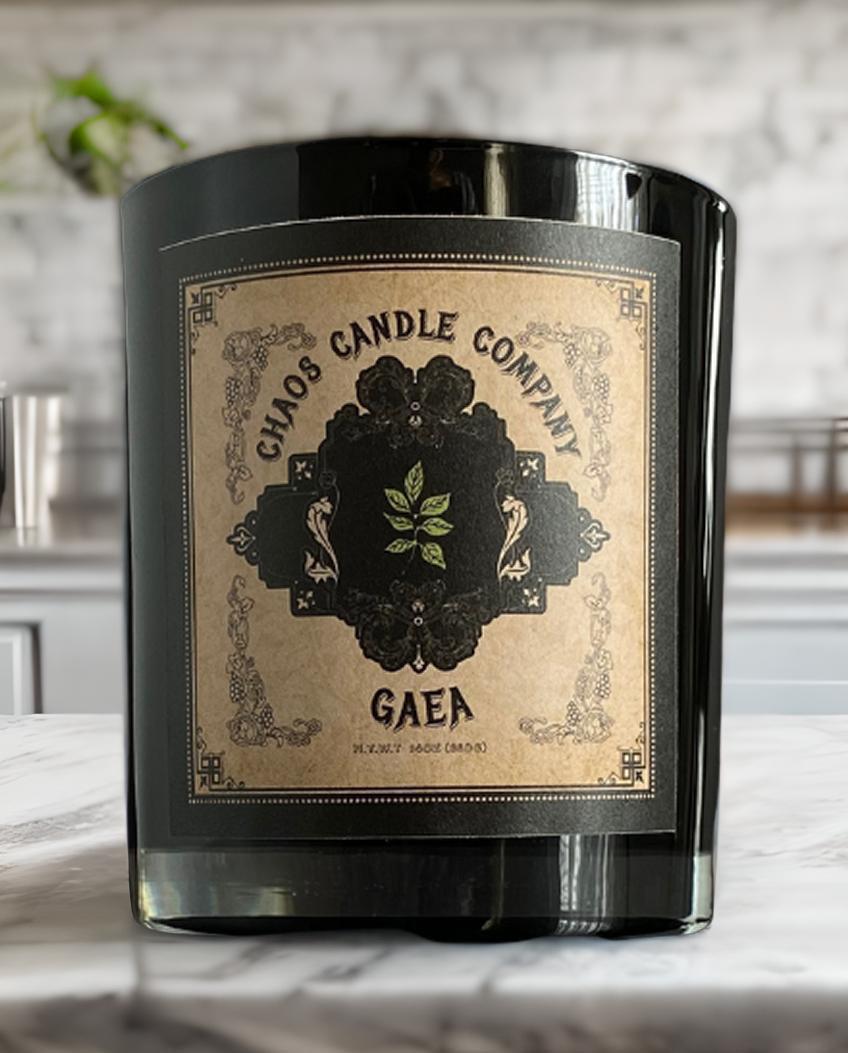 By Terry L. Watson
By Terry L. Watson
Sophia Carter is the owner of Chaos Candle Company. Also deaf, she was born and raised in the state of Maryland, though her family roots are Jamaican. Sophia grew up attending mainstream schools and did not learn American Sign Language until she reached the high school level. After graduating high school, she attended the University of Maryland and Columbia University. In addition to managing Chaos Candle Company, Sophis works for a consulting firm.
Founded in 2020, in the midst of the Covid 19 pandemic, Chaos Candle Company creates mainstream scented candles and home fragrances. Sophia says her mission is to bring inspiration into homes and empower the deaf community and customers to go beyond their fears and limits. “We understand that life can be overwhelming, and sometimes we all need a little light to us through the dark moments. Our candles are here to do just that.”
Sophia says her candles are made with the same care and attention to detail that was used when she first started. Whether you’re looking for a candle to set the mood for a romantic evening, she can help you unwind after a long day or simply bring a little light into your life. “At our Chaos Candle Co, we believe that even in the darkest moments, there is always light to be found. Our candles are a reminder of that light, and we hope they bring a little brightness into your life.”
Chaos Candle Company’s existence happened when everything seemed to be falling apart around the world. During this period, Sophia found solace in the gentle glow of a candle flame. She says, “As we burned candles throughout our home, we began to feel a sense of calm and peace that had been missing from our lives. We soon realized that we wanted to share this experience with others and help them find their own sense of calm in the midst of chaos. We started small, crafting each candle by hand with the highest quality ingredients. We specialize in wooden tube wicks with bespoke fragrances.”
Running a business brings Sophia joy and an opportunity to detach from her other obligations. “I love creating candles. You will often hear other candlemakers express their frustration with the process, but I like testing new waxes and fragrances and coming up with new ideas that my customers would enjoy. I have a vision for what my candle business could become. This vision is a constant source of inspiration, reminding me of the potential for growth and success.”
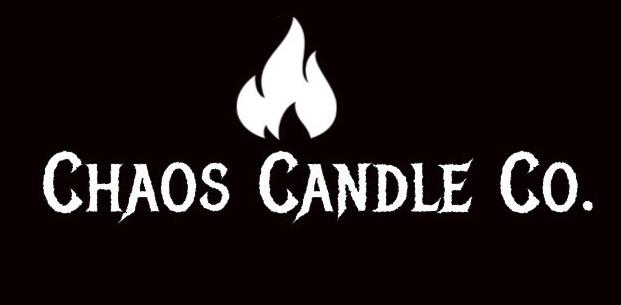
While many other deaf owned businesses exist in the DMV, expanding did not come without difficulties. Like most business owners, Sophia is constantly faced with challenges on how to make her company better. She points out how she has often encountered prejudice and passive-aggressive racism. “When I first started my business, I was focused on my products and what I could provide. I adjusted and became more diverse with my product line. Another challenge is when people find out that I am deaf owned business, they fall into the stereotypes of what deaf individuals can do. As part of the deaf community, we don’t have the resources we need to thrive in our business,” she says. Though faced with the challenges, Sophia and Chaos Candle Company have persevered.
For others who are interested in starting a business, Sophia’s advice is to start slow and do your research. “I know we all want to be on our grind and be successful, but do the work, and take your time,” she says. Moving forward, Sophia’s goal is to increase visibility with potential customers. She also plans to participate in local markets and events. Sophia says these opportunities will allow her to showcase her candles and gather valuable feedback. To learn more about Chaos Candle Company, please visit their website.
“Another challenge is when people find out that I am deaf owned business, they fall into the stereotypes of what deaf individuals can do. As part of the deaf community, we don’t have the resources we need to thrive in our business.”


Hailing from Long Island, NY, Luana M. Graves Sellars has found her way to the Lowcountry community of Hilton Head, South Carolina. Before arriving at Hilton Head, Luana made a pit stop in Florida. She had been visiting the island since she was ten years old. In the back of her mind, Luana knew Hilton Head would be where she retired, as her mother had already done.
Upon arriving at Hilton Head, Luana was asked to write freelance on the Gullah culture to help diversify the Hilton Head Monthly magazine. That experience sparked her work on the culture. “Essentially, I began writing about the culture, some of the stories, the people, the traditions, and the history. This led to the creation of my first column, The First Families of Hilton Head. All of it became so popular that I was writing about five or six columns a month for the magazine at one point. After several years, I had amassed close to 300 articles. People kept asking for specific articles, so I put all the articles online as an archive. Once it started, Lowcountry Gullah became more than an archive; it became a resource for the culture and information,” she says.
Next, Luana says she was asked when she would write her own story. Her answer was to write her story and simultaneously squash all the questions. “I wrote an article about myself called, I am Gullah. That started a curiosity about my Gullah past and a journey of discovering my roots and connections,” Luana shared. That experience grew into a new direction of ancestral connections and discovery.
Luana realized early into her venture that she could not do the Gullah culture justice without protecting the historic Gullah land, which is the largest critical issue that the culture has. Luana’s effort helped to create the Lowcountry Foundation, which was intended to protect both sides of the culture. Those sides include the traditions, the Gullah history, and the Gullah land and heritage.
The Gullah Geechee culture spread throughout the entire United States. Luana says that through documenting her stories it also became a resource for a lot of people. She found there was not only an interest and curiosity of non-Gullah people and also those who didn’t know they were growing up in the culture. “More information has been revealed with the opening of the International African American Museum in Charleston. They have reported that around 89% of black people with ties to the Gullah Geechee corridor are considered Gullah Geechee. This means that wherever you live, you can be Gullah Geechee,” she says.
Luana is a journalist with a degree in Journalism and a dual minor in Black History and Business from Southern Illinois University. She is a renowned writer, cultural authority, subject matter expert, and keynote speaker on Gullah Geechee history, traditions, and culture. Her articles, documentaries, and podcasts focus on the rich culture, history, and people in the federally designated Gullah Geechee Corridor. As a genealogist and community activist, she works towards “residential equality” for the local Gullah community. She also has a passion for storytelling and a deep connection to her own Gullah family.
There are many ways to describe Gullah Geechee. Luana answer is Gullah Geechee are direct descendants of West African enslaved people who were brought to the United States because they were knowledgeable about the technology that was necessary to grow rice. “It is far from the truth that enslaved people were skillless laborers. The terrain in West Africa is exactly like the terrain on the east coast of the United States. To grow rice, you need saltwater and freshwater. The people who were snatched knew how to build a rice trunk. There were women who knew how to plant and harvest rice for human consumption. The wealth that Gullah Geechee brought to the United States helped make slavery more successful here than any other crop. Gullah Geechee foodways is one of the oldest practices and traditions practiced in America today. At its foundation, slavery and the foodways are deeply rooted in cultural West African ancestral ties, as well as adaptability, creativity, and circumstance. The meals were and still are designed to be hearty and provide the necessary sustenance and strength to get one through an arduous and physical day. ,” Luana says.
While she is sharing, Luana is learning. That is one of the things she loves most about what she does. The other is helping others to understand more about the Gullah culture and to establish their connection. “When I am thanked for helping others learn who they are, I truly appreciate that. I know that I am impacting the Gullah culture in a way that is benefiting me and others. It is not just for black people. There are people from all around the world who have an interest in the Gullah culture. Helping others and spreading the Gullah message makes it all worth it,” she says.
Heritage tourism, Cultural tourism, Roots tourism, and Genealogy tourism. This entire category is one of the fastest growing ones for tourism in the United States, and the Lowcountry Gullah is part of that. Luana says that people want to experience new foods, new things, and new traditions, and this is part of the bigger picture that exists with the culture. “It is really driving tourism and information that people are curious about,” she says.
What is next for Luana and Lowcountry Gullah? There are plans to launch a podcast that will complement her writing. She also plans to continue to produce documentaries. Her last documentary was on Harriett Tubman and her connection to Gullah culture. It is currently broadcast on the PBS network. There is a children’s book in the works as well.
To learn more about Lowcountry Gullah, please visit their website.

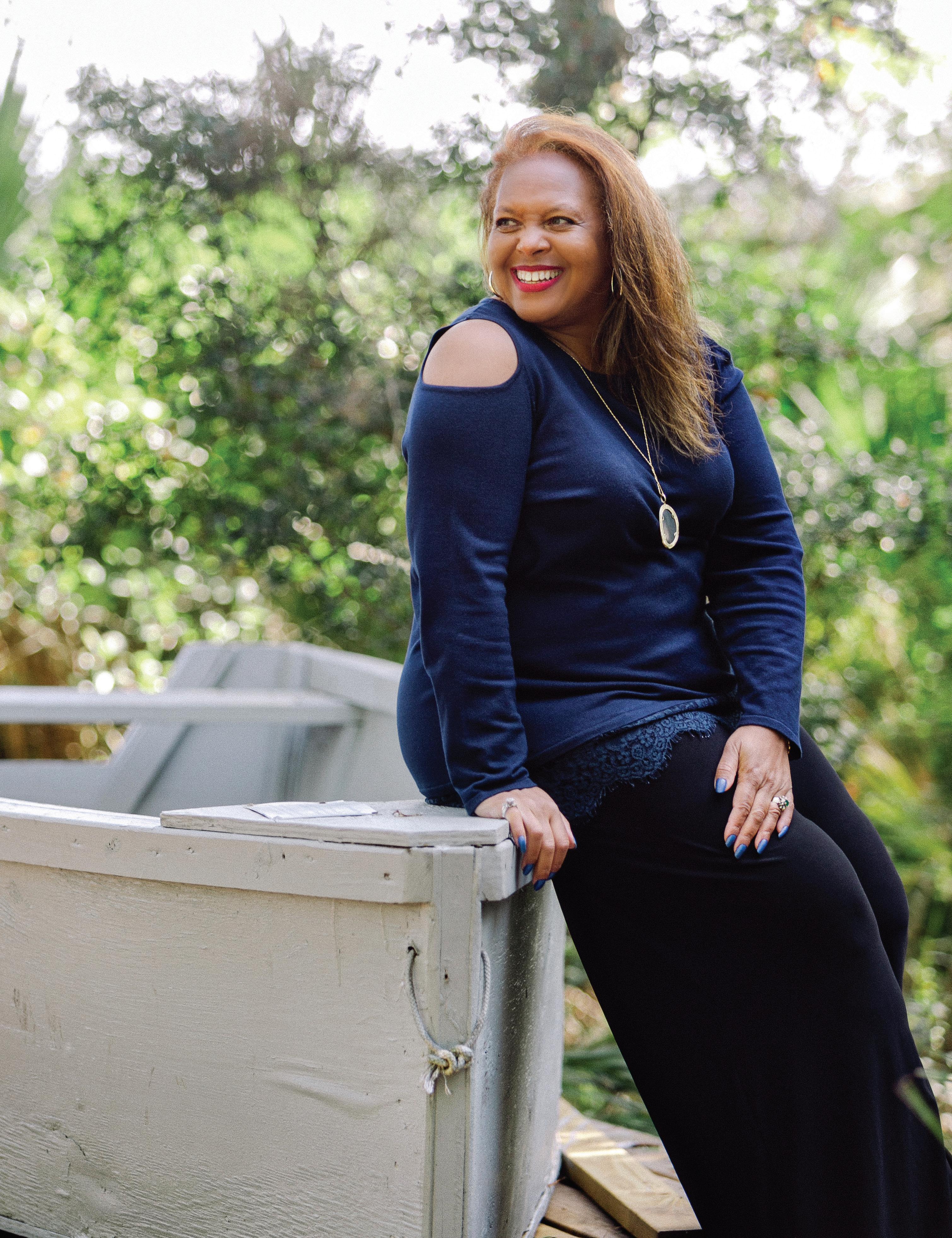
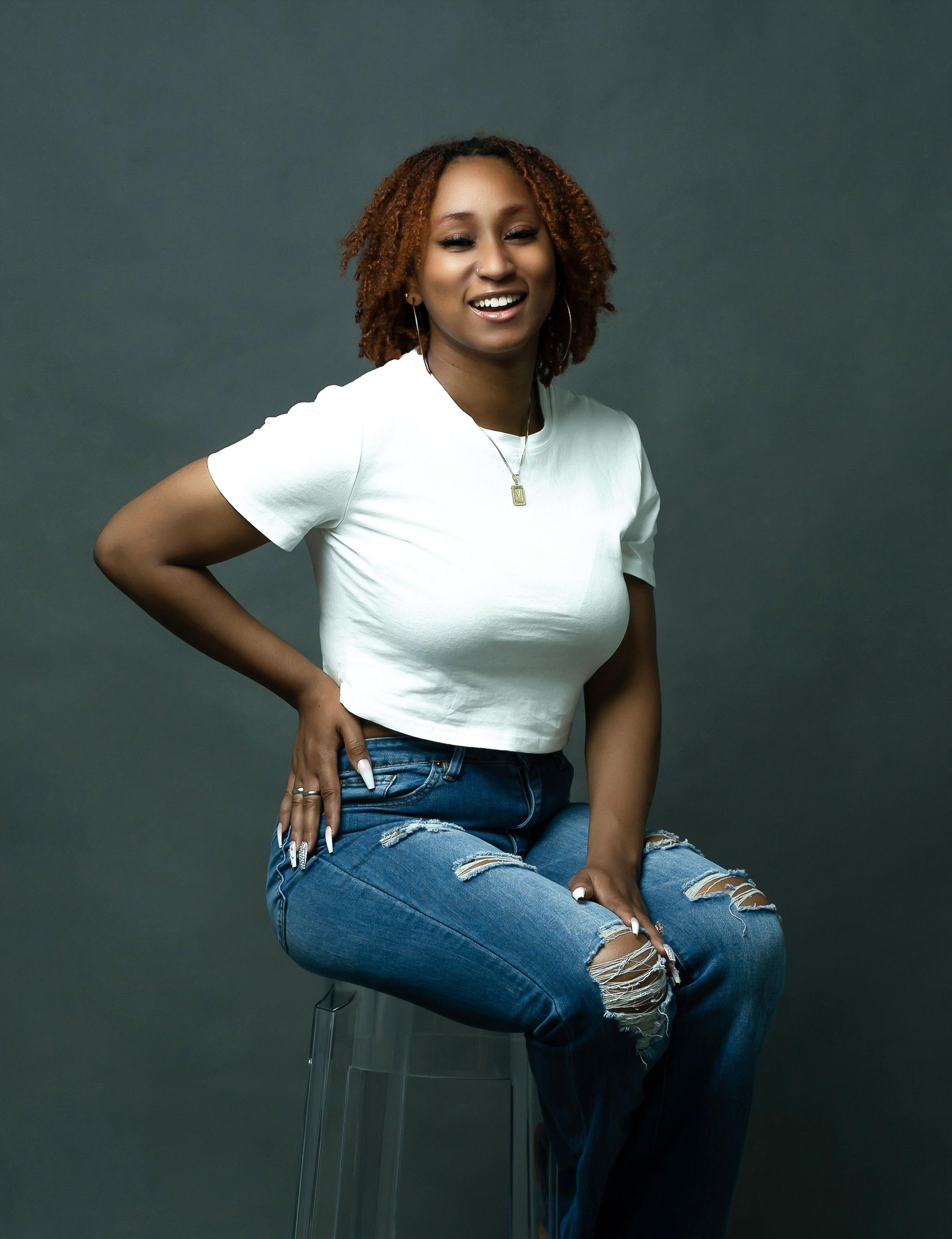 By Terry L. Watson Photos Provided by Victoria Hart
By Terry L. Watson Photos Provided by Victoria Hart
According to Merriam-Webster’s online dictionary, the definition of a doula is a person trained to provide advice, information, emotional support, and physical comfort to a mother before, during, and just after childbirth. This definition accurately describes Victoria Hart.
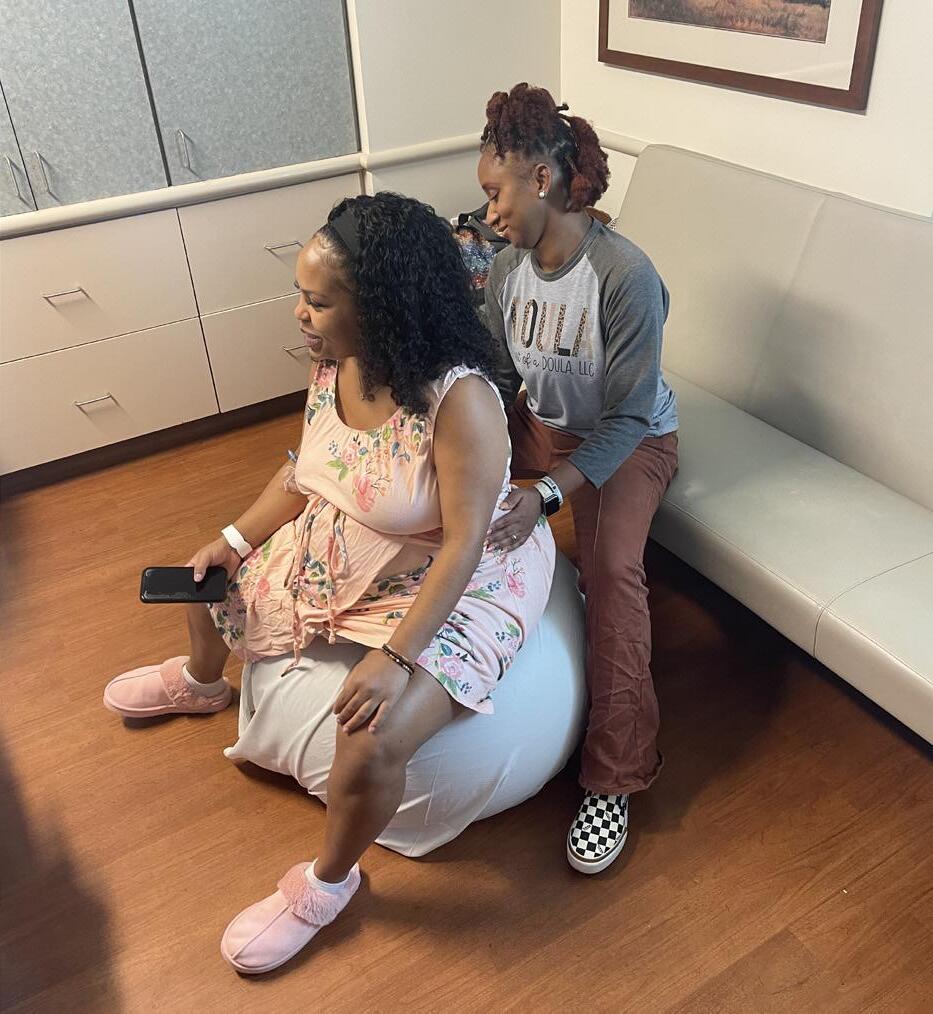
The Mississippi Gulfport resident owns Hart of A Doula & Nanny, LLC. Her company offers various levels of support, such as physical, emotional, mental, and spiritual. With her nanny services, Victoria provided exceptional childcare as well. “My services are designed for all but mainly for those who need that extra hand,” she shares.
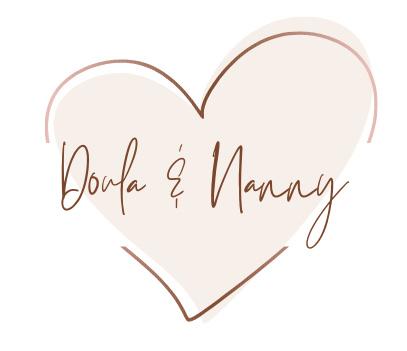
At just 27, Victoria has already accomplished a lot. She has enjoyed four years of marriage with her husband, Mechio, and besides being an aspiring entrepreneur, she has a bachelor’s degree in Natural Science. Even more, Victoria was on the road to obtaining her BSN but God said otherwise. More touching is how she describes motherhood. “I am an Angel Mom to five Angel Babies. My time will come when God says that I am ready.”
Victoria launched her business in October 2021 after Victoria’s cousin, who was expecting her second child, asked her to be her doula. “My cousin’s first birth experience was the opposite of how she planned it. She researched that having a doula by her side might empower her to take control of her birth. Once she asked me, I immediately fell in love with everything a doula stands for. In January 2022, her VBAC (Vaginal Birth After Cesarean) was extremely successful. That experience hugely impacted my doula business, and as a result, it flourished. Currently, I have 25 Doula Babies,” she says.
While Victoria started her nanny business in April 2022, she has served as a nanny since she was 19. “It was basically a summer job while on break from college. However, I have always loved watching kids, even as a kid myself,” she says. Victoria now has 45 “Nanny Babies”.
When asked what inspires her the most about her business, Victoria shared that, regarding being a doula, seeing how black women were mistreated during pregnancy and even childbirth made her realize how much of an impact she could make in their lives. “I have been discriminated against in the medical field concerning infertility issues, so I know firsthand what that can feel like.” In response to the same question pertaining to being a nanny, she says, “In this day and age, it is hard to trust people with your kids because you never know their true intentions. With me, on the other hand, my intentions are pure from the start, and my parents can tell. I desire to be the extra help they need when they cannot find it anywhere else.”
Victoria says she really loves what she does. She shares that hearing how her attendance during the birthing experience or watching her client’s children changed their lives for the better makes it all worth it. “I just do what I love. I have been told numerous times that I inspire other people to follow their passions. The fact that I followed my passion and can help families in need and still pay my bills is all that I need.”
Growing both businesses has proven to be a little challenging, but fortunately for Victoria, the assistance of social media has helped in many ways. Additionally, finding ways to fund her businesses has been a learning experience. Victoria says she wished she had obtained funding before jumping into entrepreneurship. “I just jumped in, head and HART first, no questions asked,” she says.
In the future, Victoria hopes to open a birthing center in her area. Currently, there isn’t one, and she says doctors are afraid to open one due to liability issues. She also hopes to open a postpartum care center to provide care for the first few weeks after birth, which can sometimes be rough with the transition into being a newborn mom. Victoria has plans in the works for a daycare center with after-hour options.
Adrian E. Miller regards himself as the Soul Food Scholar who is dropping knowledge like hot biscuits. The Dever, CO, native has enjoyed careers in various arenas. He is a recovering attorney, a former Politico, and an author. Currently, he is the Executive Director of the Colorado Council of Churches. In his role, he brings people together across denominational lines in the Christian faith tradition, and they collectively do social justice work.
He focused on commercial litigation as an attorney, but the main focus was employment law. “That area of focus was not what I really wanted to do. I wanted to do corporate law, assist entrepreneurs in building their businesses, and help them develop an exit strategy. But, when you go work for a big law firm, they plug you in where they need you. It just wasn’t for me, and it got to the point where I was singing spirituals in my office,” he says.

As the Council of Churches, Adrian oversees 13 Christian denominations, representing over 800 churches in Colorado. Adrian primarily works with the mainline protestant denominations and strives to get people to connect people outside of their church walls and denomination walls. “Most people only relate to people in their church. I try to connect people in the broader Christian community and collectively do social justice work. We are a lot stronger than we are separately,” he shares.
Adrian’s journey also includes a stint with him working in the White House with former President Bill Clinton. The program he worked on was called The President’s Initiative for One America, an outgrowth of President Clinton’s initiative on race, which the late John Hope Franklin chaired.
As mentioned, Adrian is regarded as the Soul Food Scholar, a self-proclamation derived by Adrian. The books he has written on this subject matter include Soul Food: The Surprising Story of American Cuisine, One Plate At a Time, The President’s Kitchen Cabinet, and Black Smoke: African Americans and The United States of Barbeque.
Adrian says, “I am self-taught, and I arrived at this title due to unemployment. After leaving my stint at the White House, I was trying to get back to Colorado and start my political career. The job market was really slow, and I watched a lot of daytime television. In the depth of my depravity, I decided to read something and purchased a book from a local bookstore titled The History of Southern Food, written by John Edgerton. In his book, John said the tribute to black achievement in American cooking has yet to be written. I found that to be very interesting. I decided to reach out to him and see if he thought that was still true. John said he did and believed that no one had taken on the full story. With no qualifications at all, besides eating a lot of soul food and cooking it some, I started on the journey to answer my own question,” he says.
By Photos Provided by Adrian Miller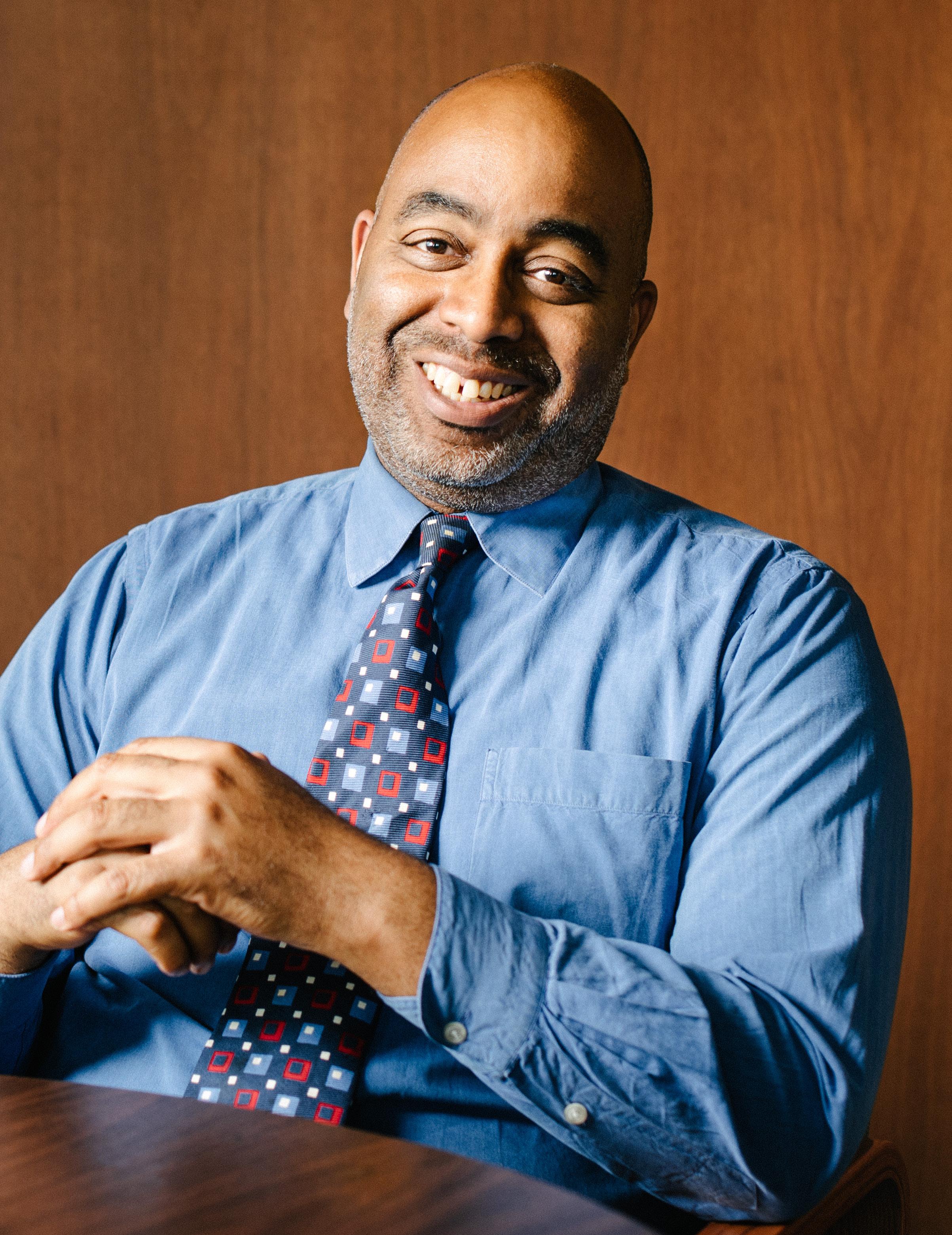
Adrian headed back to Denver, and upon arriving, he got into politics. In his spare time, Adrian would read everything he could get his hands on about African-American food traditions. This included 3,500 oral histories about formerly enslaved people, 500 cookbooks, half of them authored by black people, and thousands of magazine and newspaper articles and talked to hundreds of people. Adrian shares that because he cares about his subject so dearly, he decided to eat his way through the country; he visited 150 soul food restaurants in 35 cities in 15 states. That exploration lasted about the course of a year and a half.
In regards to soul food, Adrian says his favorite dish is greens. “I love soul food greens. My favorite is mustard and turnip greens without the turkey. My mom is from Chattanooga, TN, and she cooked mustard and turnip greens. I learned there is a regional difference in the preference for greens. If you are from the Deep South, you will most likely eat collards. If you are from the mid-Atlantic, you will likely enjoy kale. I also love bone-in-fried Catfish. I love that,” he says.
In his travels to learn more about soul food, Adrian says what shocked him was learning the narrative that it was created by white people for black people as the food they did not want. “In doing my studies, I learned the Southern food story has more to do with class and place than it is about race. So, pretty much, African Americans of the same socioeconomic class are eating the same foods.”
He also gained a deeper appreciation of the African influences on soul food. “Before, I didn’t know much about African influence. I learned that African’s brought some of their foods to America from Africa and adapted to some things in America. I saw a lot more agency in trying to shape their foods while in the most horrific circumstances.”
Adrian says that due to his research, he has become inspired by the celebration of African-American cuisine. “I observed how the African American food tradition was heavily criticized while others were not. I wanted to know what was up with that. If you investigate the nutritional facts of other cuisines, you can’t argue they are healthier than soul food. I thought that something else must be going on. I learned that it is criticized because it is strongly associated with slavery and poverty. It is also believed to be inherently unhealthy. I wanted to unpack that and sort out fact from fiction. I also wanted to celebrate what we’ve brought to the table in terms of the cooks, the cuisine, and the culture,” he says.
For those interested in venturing on a journey similar to that of Adrian, the Soul Food Scholar, he offers some advice that may help along the way. “First of all, you have to do the work. It is so tempting to take a shortcut, but that often leads to mistakes. You must keep receipts because there are people who will doubt you, especially within the African-American culture. Also, find your bliss and that which sings to your heart and soul, and share your dream with others because that might open new doors of opportunity for you,” he says.
Please visit his website to learn more about Adrian Miller and purchase copies of his books.

